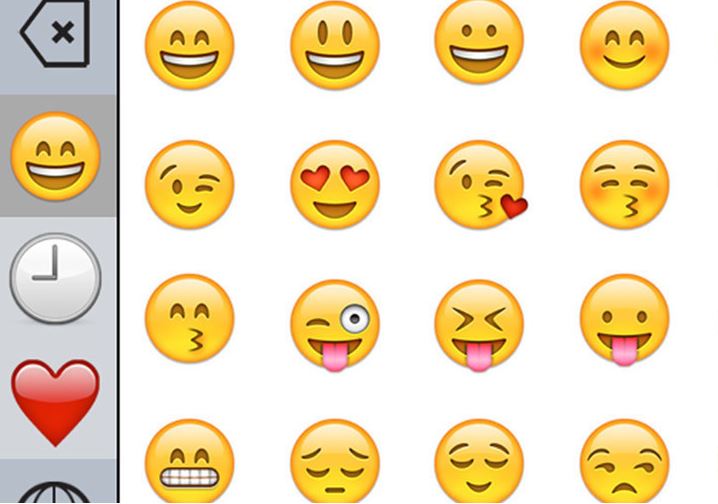
From the People’s Daily app.
This is Story in the Story.
On September 19, Chinese Premier Li Keqiang announced that China will adopt a stricter protection system on intellectual property rights (IPRs).
He made the remarks when addressing the opening plenary at the Annual Meeting of the New Champions 2018, also known as Summer Davos, in Tianjin.
A week later, the Information Office of the State Council released a white paper titled "The Facts and China's Position on China-US Trade Friction", stated China's attitude toward the protection of intellectual property rights (IPR) is clear and firm.
China has continued to reinforce protection through legislation, law enforcement and the judiciary, and achieved some notable successes, the white paper said.
"China built a fully-fledged and high-standard IP legal framework in a relatively short period, compared to the decades or more that developed countries spent setting up similar legal systems," the white paper said. "China has put in place a complete regime of IPR protection, utilization and administration, spanning laws, planning, policies and enforcement agencies."
"China had accomplished all this at a speed unmatched in the history of intellectual property protection," Dr. Arpad Bogsch, former director-general of the World Intellectual Property Organization (WIPO), was quoted as saying by the white paper.
China has intensified judicial protection for intellectual property and given full play to judicial protection, according to the white paper.
According to the white paper, China adopts a dual-track protection system where IP right holders can seek not only judicial but also administrative protection.
Today's Story in the Story will look how China's effort on the protection of intellectual property rights benefited emoji creators in China.

Residents in Shenyang, Northeast China's Liaoning Province, see a theme show of a set of popular emojis in a shopping mall on August 19. (Photo: VCG)
Jin Fenglin, a 28-year-old white collar worker in Shenzhen, has downloaded at least 21 sets of emoji, including at least 336 emojis, for her daily communications with others on her WeChat social media account. Her favorite emoji is a yellow colored cartoon face laughing so hard it is crying.
Every set of emojis that users can download from the WeChat platform is based around a cartoon character created by artists or a celebrity and includes 16 to 24 emojis expressing different emotions.
In combination with popular cyber word captions and catchphrases such as "thank you boss," emojis have become a new way of communicating online among the younger generation in China.
During the 2018 Chinese New Year vacation, more than 45 percent of Chinese netizens chose to use emojis when sending wishes to each other, the People's Daily Overseas Edition reported.
While most people in China merely accept emojis as a tool for humorous exchanges, some others have started making money on them.
Thirty-year-old John Johnny, as he is professionally known, created a set of emojis in 2015 named "Crazy Food." Bananas, donuts and eggs are personified and endowed with emotions.
The emojis have been widely used by netizens and Johnny has sold the copyright to the WeChat platform. He also received over 40,000 followers on China's Twitter-like Sina Weibo.
Users can reward certain emojis with one to 50 yuan ($0.15 to $7.70), and the money will be transferred into the emoji creator's account, according to a regulation document sent to the Global Times by WeChat.
However, the reward from selling to individual users is limited compared to the money that can be gained from commercializing the images over different types of products.
According to a list of the top emoji figures provided by the WeChat platform to the Global Times, a cartoon figure which is round in shape and with a tuft of grass on its head tops the list.
The copyright of Budding Pop, as the figure is named, belongs to the Beijing-based company Block 12 Culture.
The image of Budding Pop "has been made into many other products such as lamps and bolsters and is being sold in both online and physical stores," Cao Xiaonan, who works at Block 12, told the Global Times.
Since 2014 when Budding Pop was created, the company has introduced more than 100 different characters, which have been used by customers on the WeChat platform over 900 million times.
Related cartoons and short videos have been transmitted or watched 5 billion times, according to a report sent by the company to Global Times.
Block 12 Culture has also cooperated with food companies and film producers to let their figures appear in different contexts and expand their influence.
China is not the first country mining the commercial value of copyrighted emojis.
One of its predecessors is Line Friends, a popular cartoon brand from South Korea.
The characters from the company appear on toys, electronic products, accessories and even medicine, as well as in the 45 physical Line Friends theme stores worldwide, which altogether brought the company $300 million in income in 2015.
Block 12 Culture "has experienced a rapid development during the past few years," Cao said.
Relying on those popular figures and a promising business model, the company has received about 25 million yuan ($3.8 million) from investors in 2017 and another 43 million yuan in April.
One set of Johnny's characters was pirated and sold illegally on the WeChat platform in 2015. "I reported it to WeChat and they later took down the emojis," Johnny said.

(Photo: Xinhua)
Block 12 also faced many such cases.
Yi Wenhui, who works at Beijing-based intellectual property agency Shanmu, told the Global Times that he would recommend individuals and companies to apply for the copyright of original figures once they are created.
And once the figures are used for commercial purpose, "They should also apply for an ownership of trademark," Yi said.
Block 12 Culture has applied for copyrights of 106 of their figures and trademarked 22.
The WeChat platform has also introduced regulations on intellectual property protection. "The platform welcomes artists to report any copyright infringement and the platform will react within seven working days," said Jin Haixing, a WeChat employee.
Awareness of copyright has not been adequately popularized in China, and intellectual property protection is still one of the key issues in the development of original characters in future, People's Daily report on September 17.
(Produced by Nancy Yan Xu, Terry Guanlin Li, Raymond Mendoza, Lance Crayon and Grace Song. Music by: bensound.com. Text from Global Times and Xinhua.)


